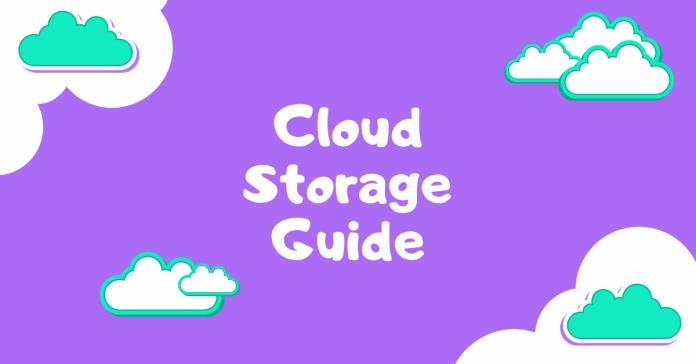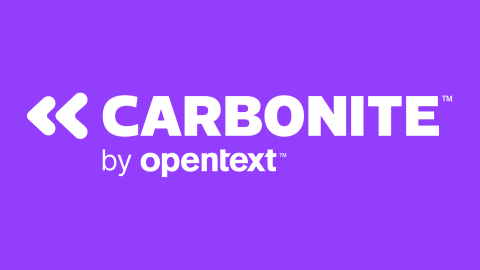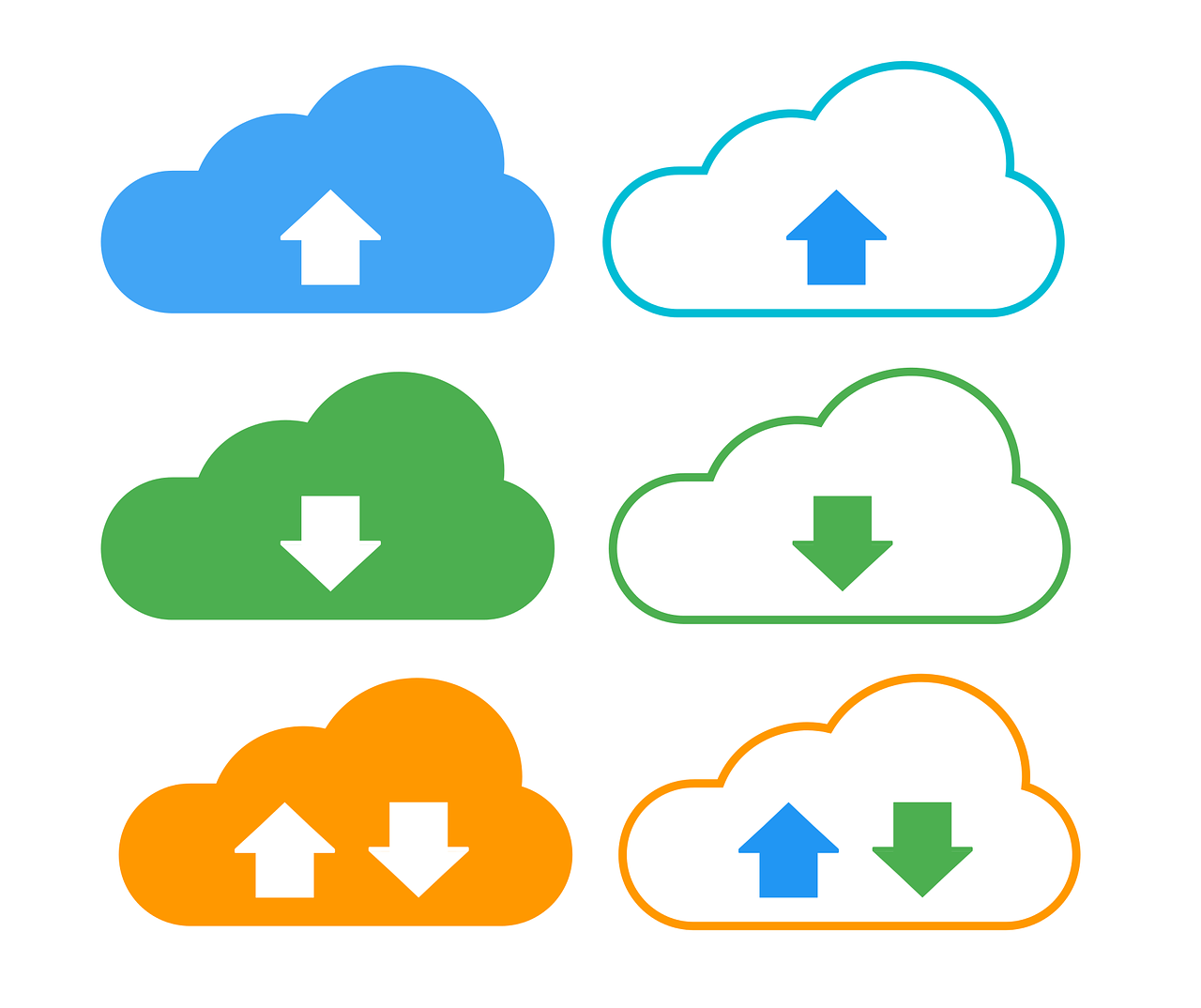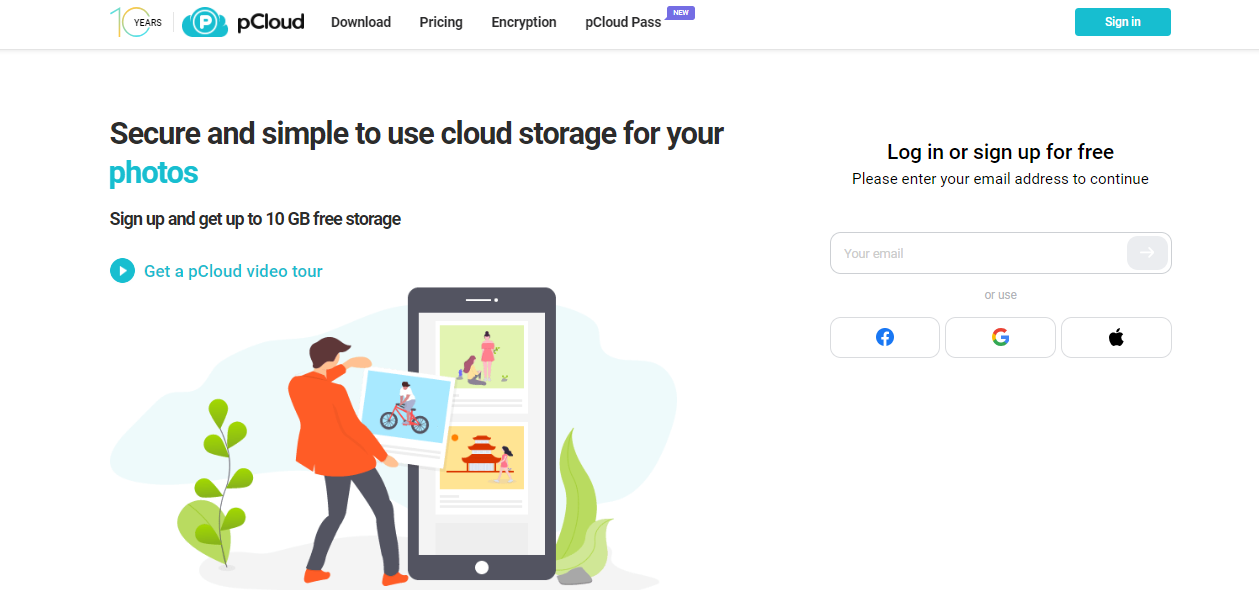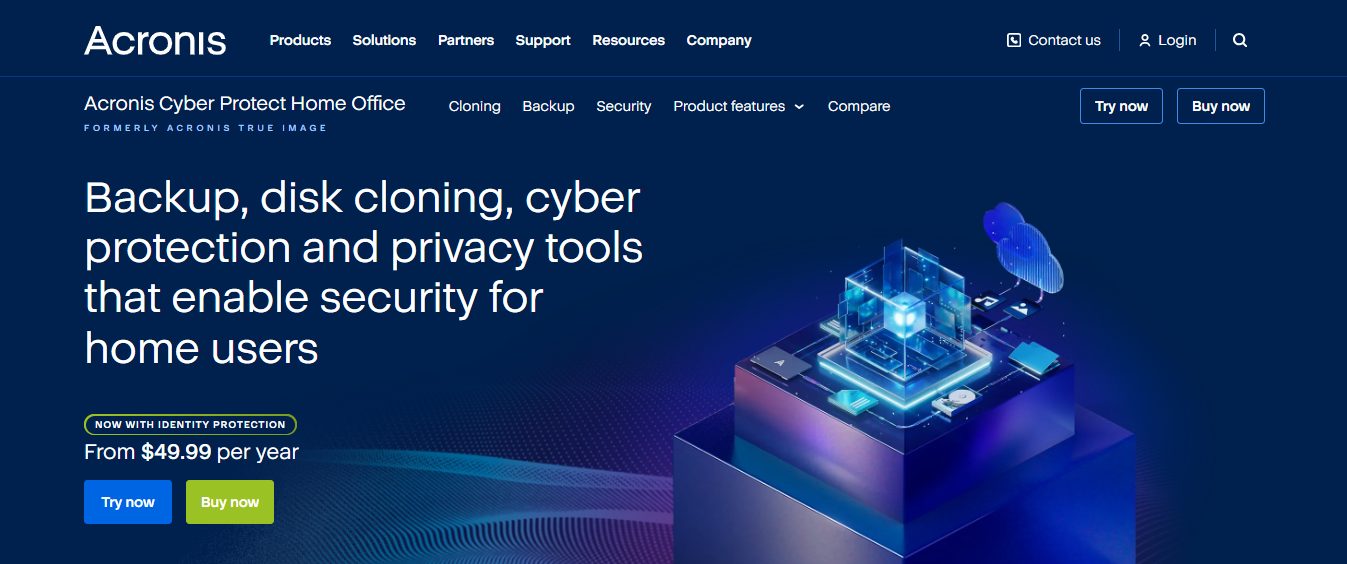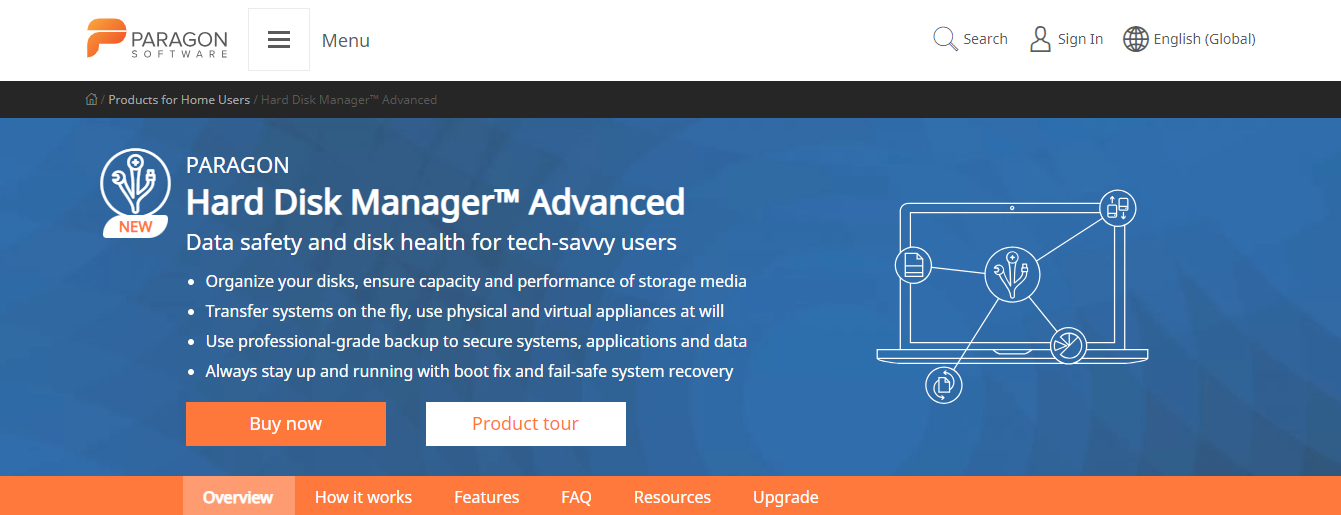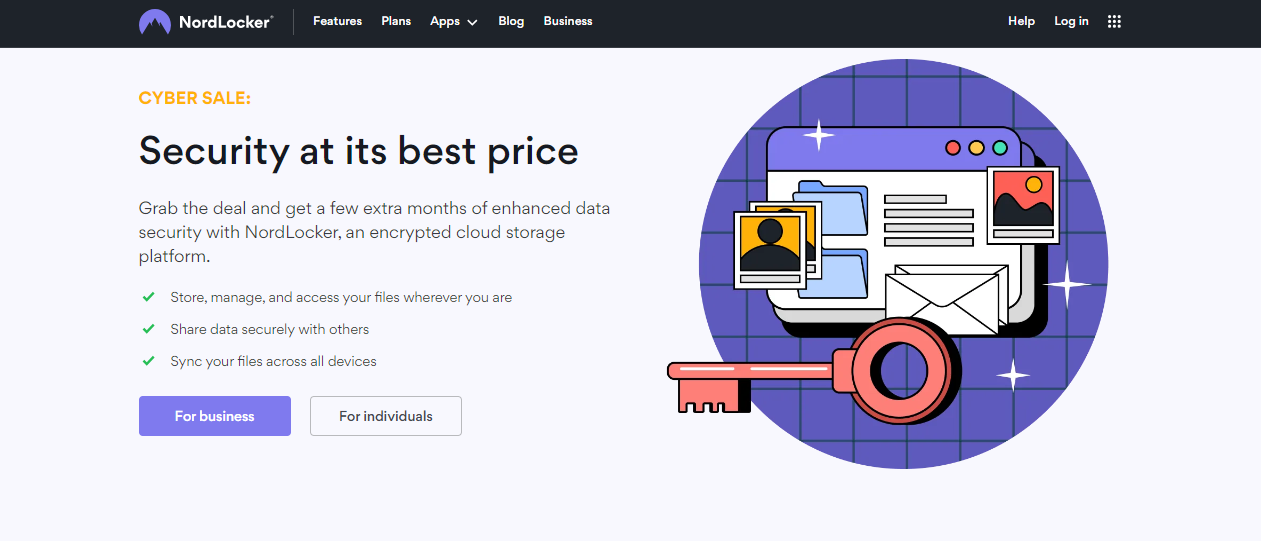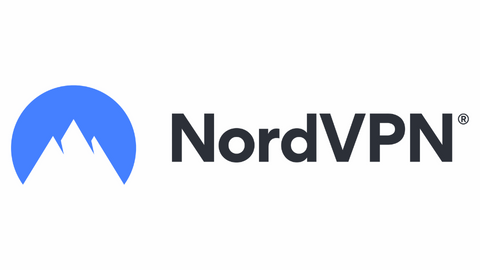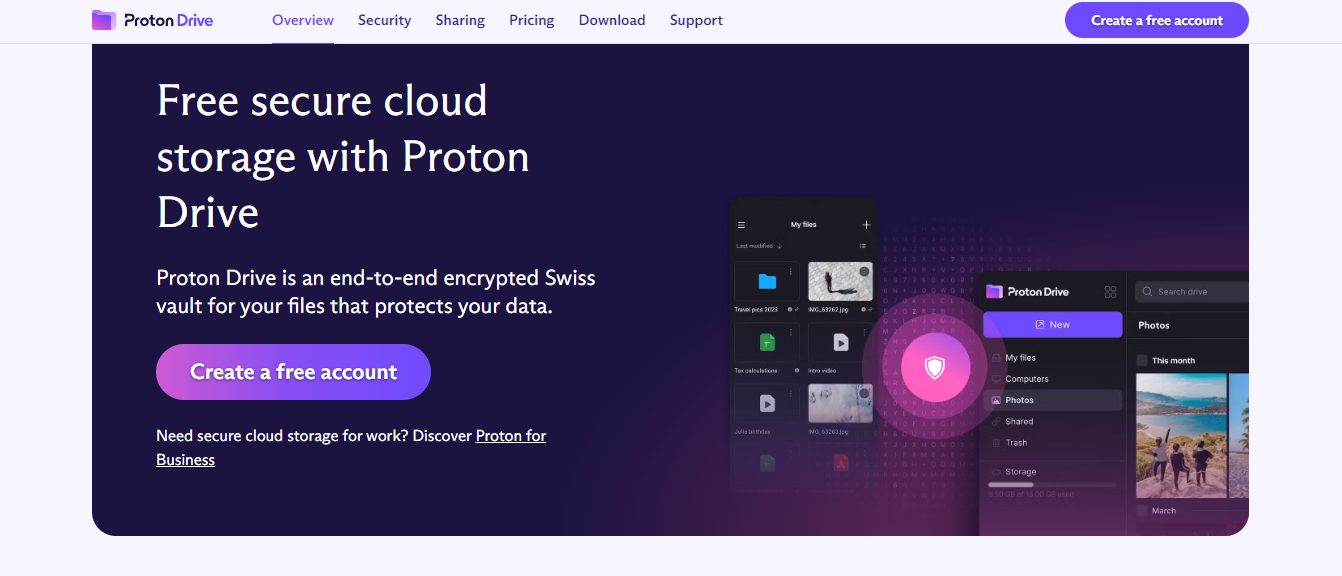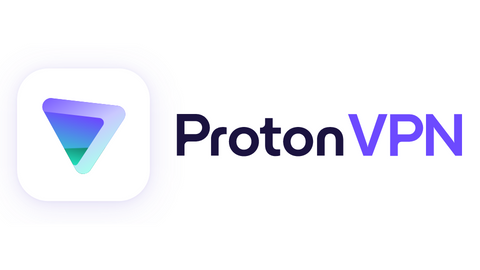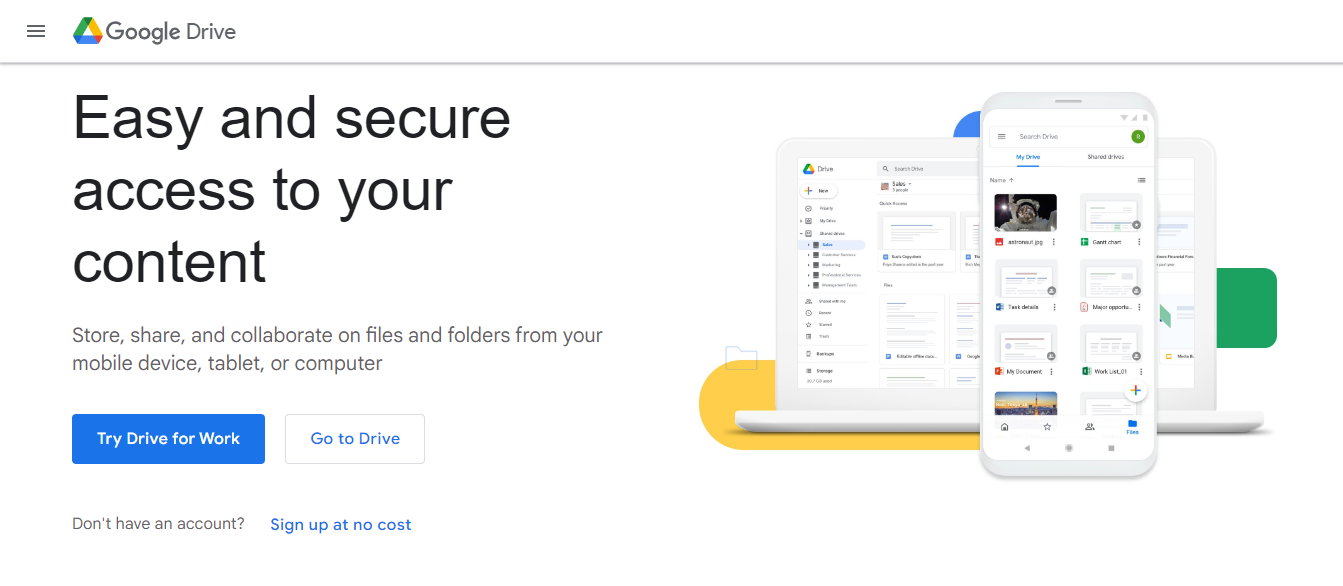Here is the cloud storage guide for businesses and individuals.
In today’s data-driven world, organizations and individuals alike are generating and consuming vast amounts of information.
Traditional storage methods, such as external hard drives and physical servers, are becoming increasingly inadequate to handle the growing volume and complexity of data.
Cloud storage has emerged as a revolutionary solution to managing, storing, and accessing this ever-growing volume of data.
Cloud storage has transformed the way businesses and individuals store and access their valuable information.
It offers a plethora of benefits, including scalability, accessibility, cost-effectiveness, and disaster recovery, making it an indispensable tool for organizations of all sizes and individuals with diverse data needs.
Without further ado, let’s get started with the cloud storage guide.
Table of Contents
Cloud Storage Guide: What Is Cloud Storage?
Cloud storage is a service that allows users to store data remotely on servers hosted by a third-party provider.
This model eliminates the need for individuals and businesses to maintain their own physical storage infrastructure, offering a scalable, cost-effective, and accessible solution for data management.
Imagine a vast warehouse filled with countless shelves, each holding a piece of your data. Instead of having to personally manage this warehouse, you entrust it to a professional storage provider.
They handle the organization, security, and maintenance of your data, ensuring its safety and accessibility whenever you need it. That’s essentially how cloud storage works.
TOP CLOUD STORAGE DEALS
How Does Cloud Storage Work?
Cloud storage operates through a distributed network of data centers, where data is stored and replicated across multiple servers. This distributed architecture ensures redundancy and protection against data loss.
When a user uploads data to the cloud, it is fragmented and distributed across these servers, creating multiple copies of the same data. This redundancy ensures that even if a server fails, the data remains accessible from other servers.
Picture your data as a puzzle scattered across multiple servers. When you access your data, the cloud storage service seamlessly reassembles the puzzle from its various pieces, providing you with the complete information you need.
Now, for this cloud storage guide, let me talk about its benefits.
Benefits of Cloud Storage
Cloud storage offers a multitude of benefits for businesses and individuals, transforming the way they manage and access their data:
Scalability
Cloud storage seamlessly scales to meet changing data storage needs, accommodating both small and massive data volumes without the need for upfront hardware investments.
Unlike traditional storage methods that require physical expansion, cloud storage provides a virtual warehouse with unlimited shelf space. As your data grows, the cloud seamlessly expands to accommodate it, ensuring you never run out of storage.
Accessibility
Cloud storage enables users to access their data from any device with an internet connection, promoting mobility and flexibility.
With cloud storage, you’re not tied to a specific device or location. Whether you’re using a laptop, smartphone, or tablet, you can access your data from anywhere in the world with an internet connection.
Cost-effectiveness
Cloud storage eliminates the costs associated with maintaining physical storage infrastructure, providing a pay-as-you-go model that aligns with data usage.
Instead of investing in expensive hardware and software for data storage, you pay for the storage you actually use with cloud storage. This pay-per-use model aligns your expenses with your data usage, ensuring cost efficiency.
Disaster Recovery
Cloud storage ensures data resilience against physical disasters or hardware failures by replicating data across multiple data centers.
In the event of a disaster, such as a fire or flood, your data remains safe and accessible from other data centers. Cloud storage acts as a virtual backup, safeguarding your valuable information from unforeseen events.
To proceed with the cloud storage guide, I will show you the types of cloud storage that we have.
READ ALSO: 5 Reliable Ways to Backup your Android Device and Tips to Secure it
Types Of Cloud Storage
Here is an overview of the different types of cloud storage available in the market:
1. Public Cloud Storage
Public cloud storage is the most common type of cloud storage, offered by third-party providers such as Amazon Web Services (AWS), Microsoft Azure, and Google Cloud Platform (GCP).
These services provide a vast pool of storage resources that users can access over the internet.
Key Characteristics of Public Cloud Storage
Scalability: Public cloud storage is highly scalable, allowing users to quickly and easily add or remove storage capacity as needed.
Accessibility: Public cloud storage can be accessed from anywhere with an internet connection, providing users with flexibility and mobility.
Cost-effectiveness: Public cloud storage typically follows a pay-as-you-go model, where users only pay for the storage they consume, making it a cost-effective option.
Examples of Public Cloud Storage Providers
- Amazon S3 (Simple Storage Service)
- Microsoft Azure Blob Storage
- Google Cloud Storage
2. Private Cloud Storage
Private cloud storage is a dedicated cloud storage infrastructure deployed within an organization’s own data center. This type of storage offers greater control over security, data privacy, and customization.
Key Characteristics of Private Cloud Storage
Security: Private cloud storage provides greater control over security measures, physical access, and data privacy.
Customization: Private cloud storage can be customized to meet specific requirements and integrate with existing IT infrastructure.
Control: Organizations have complete control over their data and can manage resources without relying on a third-party provider.
Examples of Private Cloud Storage Solutions
- VMware vSAN
- OpenStack
- Microsoft Hyper-V
3. Hybrid Cloud Storage
Hybrid cloud storage combines the elements of public and private cloud storage, offering a balance between scalability, security, and cost-effectiveness.
Organizations can store sensitive data on their private cloud while utilizing public cloud storage for non-critical data or for scaling purposes.
Key Characteristics of Hybrid Cloud Storage
Flexibility: Hybrid cloud storage provides flexibility in choosing the most suitable storage environment for different data types and workloads.
Cost-optimization: Organizations can optimize costs by storing infrequently accessed data on public cloud storage while keeping sensitive data on private cloud infrastructure.
Scalability: Hybrid cloud storage can seamlessly scale to meet fluctuating data storage needs by leveraging both public and private cloud resources.
Examples of Hybrid Cloud Storage Solutions
- AWS Storage Gateway
- Azure Arc for Data Services
- Google Cloud Anthos Storage
4. Object Storage
Object storage is a type of cloud storage that treats data as discrete objects, each with its own unique identifier and metadata.
This architecture enables efficient storage and retrieval of large volumes of unstructured data, such as images, videos, and logs.
Key Characteristics of Object Storage
Scalability: Object storage is highly scalable and capable of storing petabytes or even exabytes of data efficiently.
Durability: Object storage replicates data across multiple servers, ensuring high durability and data protection against hardware failures.
Cost-effectiveness: Object storage is typically more cost-effective for storing large amounts of unstructured data compared to traditional block or file storage.
Examples of Object Storage Solutions
- Amazon S3
- Microsoft Azure Blob Storage
- Google Cloud Storage
5. File Storage
File storage is a type of cloud storage that mimics the structure of a traditional file system, allowing users to store, organize, and access files in a familiar way.
This type of storage is suitable for storing structured data, such as documents, spreadsheets, and presentations.
Key Characteristics of File Storage
Familiarity: File storage mirrors the file system structure, making it easy for users to understand and navigate.
Ease of Use: File storage is generally easy to use and manage, requiring minimal technical expertise.
Compatibility: File storage is compatible with a wide range of applications and operating systems.
Examples of File Storage Solutions
- Google Drive
- Dropbox
- Microsoft OneDrive
6. Block Storage
Block storage is a type of cloud storage that divides data into fixed-size blocks, each with a unique address.
This architecture provides efficient access to individual blocks of data, making it suitable for applications that require fast and consistent data access.
Key Characteristics of Block Storage
Low Latency: Block storage offers low latency and consistent performance, making it suitable for real-time applications.
Block-level Access: Block storage allows direct access to individual blocks of data, enabling efficient data manipulation.
Volume Flexibility: Block storage volumes can be resized or expanded to meet changing storage requirements.
Examples of Block Storage Solutions
- Amazon EBS (Elastic Block Store)
- Microsoft Azure Disk Storage
- Google Cloud Persistent Disk
In this cloud storage guide, I will also reveal the best cloud storage services.
Recommended Cloud Storage Services
Here is a detailed overview of the recommended cloud storage services:
1. Carbonite
Carbonite is a leading provider of cloud-based backup and disaster recovery solutions for businesses and individuals.
Their cloud storage service offers a comprehensive suite of features, including:
Automated backups: Schedule regular backups of your data to protect against accidental deletion or hardware failure.
File recovery: Easily restore files or folders to their original state from any point in time.
Ransomware protection: Safeguard your data from ransomware attacks with advanced encryption and file versioning.
Mobile access: Access and manage your files from anywhere using their mobile apps for iOS and Android.
Carbonite offers various pricing plans to suit different needs, including individual plans, small business plans, and enterprise plans.
2. pCloud
pCloud is a secure and user-friendly cloud storage service that emphasizes privacy and data protection. Their key features include:
Client-side encryption: Encrypt your data before uploading it to the cloud, ensuring that only you have access to your files.
Zero-knowledge security: pCloud has no access to your decryption keys, providing a higher level of privacy.
File sharing and collaboration: Share files and folders securely with others, and collaborate on documents in real-time.
Lifetime plans: pCloud offers lifetime access to storage plans, making it a cost-effective option for long-term use.
pCloud provides individual and business plans, with lifetime plans available for both.
3. Acronis Cyber Protect
Acronis is a comprehensive cybersecurity and data protection provider offering a range of cloud storage solutions for businesses and individuals. Their cloud storage service features:
Universal data protection: Protect all types of data, including files, systems, applications, and mobile devices.
Disaster recovery: Recover your systems and data quickly in the event of a disaster or cyberattack.
AI-powered protection: Leverage AI to detect and prevent ransomware attacks and other threats.
Hybrid cloud storage: Combine cloud storage with on-premises storage for a hybrid protection strategy.
Acronis offers various pricing plans tailored to specific needs, including individual plans, small business plans, and enterprise plans.
4. Paragon
Paragon is a leading provider of data management and backup solutions, offering a cloud storage service with a focus on data loss prevention. Their key features include:
Advanced backup options: Schedule backups based on various criteria, such as file changes, time intervals, or event triggers.
Data replication: Replicate your data to multiple cloud storage locations for enhanced redundancy.
Data migration: Easily migrate your data from one cloud storage provider to another.
Virtual machine support: Protect and manage virtual machines stored in the cloud.
Paragon offers various pricing plans for individuals and businesses, with flexible options for different data protection needs.
5. NordLocker
NordLocker is a cloud storage service that emphasizes security and privacy, offering features like:
End-to-end encryption: Encrypt your data on your device before uploading it to the cloud, ensuring that only you have access to it.
Two-factor authentication (2FA): Protect your account with an extra layer of security using 2FA.
File versioning: Keep track of previous versions of your files to revert to an earlier state if needed.
Secure file sharing: Share files securely with others using encrypted links and password protection.
NordLocker offers individual and business plans, with both monthly and annual payment options.
6. Proton Drive
Proton Drive is a cloud storage service from Proton Technologies, known for its commitment to privacy and security. Their key features include:
Zero-knowledge encryption: Proton has no access to your encryption keys, providing a high level of privacy.
Secure cloud storage: Store your data securely in Switzerland, with strong data protection laws.
End-to-end encrypted file sharing: Share files securely with others using end-to-end encryption.
Support for multiple platforms: Access your files from anywhere using their apps for iOS, Android, Windows, macOS, and Linux.
Proton Drive offers individual and business plans, with monthly and annual payment options.
7. Google Drive
Google Drive is a popular cloud storage service from Google, integrated with Google Workspace and various Google apps.
Its key features include:
Seamless integration with Google Workspace: Easily access and manage your files within Google Docs, Sheets, Slides, and other Google apps.
Real-time collaboration: Collaborate on documents and files in real-time with others.
Offline access: Access your files even without an internet connection.
Mobile apps: Manage your files from anywhere using their mobile apps for iOS and Android.
Google Drive offers various storage plans, including a free tier with limited storage and paid tiers with more storage and advanced features.
Choosing the Right Cloud Storage Provider
Selecting the right cloud storage provider involves evaluating factors such as:
Pricing
Compare pricing models and ensure they align with your storage and usage needs. Analyze the different pricing tiers offered by providers to find the most cost-effective option for your specific needs.
Security
Assess the provider’s security measures, including data encryption, access controls, and compliance certifications. Ensure the provider employs robust security protocols to protect your data. Check for certifications such as SOC 2 and ISO 27001 to verify their commitment to security.
Scalability
Evaluate the provider’s ability to scale with your growing data needs. Choose a provider that can accommodate your future storage requirements. Consider their track record of handling increasing data volumes.
Customer Support
Ensure the provider offers responsive and reliable customer support. Prompt and knowledgeable support is crucial when dealing with data management issues. Check customer reviews and inquire about their support channels and responsiveness.
Data Redundancy and Availability
In addition to security measures, assess the provider’s approach to data redundancy and availability. A reliable cloud storage provider should have robust systems in place to ensure the redundancy of your data across multiple locations.
This redundancy not only safeguards your data against potential hardware failures but also enhances its availability, minimizing the risk of data loss due to unforeseen circumstances.
Integration Capabilities with Third-Party Services
Consider the ease with which the cloud storage provider integrates with third-party services. Compatibility with a wide range of applications, development frameworks, and tools can significantly enhance your workflow efficiency.
Look for providers that offer seamless integration with popular services and tools relevant to your organization, whether it’s collaboration software, analytics platforms, or development environments.
Data Transfer and Retrieval Speeds
The speed at which you can transfer data to and retrieve it from the cloud storage service is crucial, especially for organizations dealing with large datasets.
Evaluate the provider’s network infrastructure, available bandwidth, and data transfer protocols to ensure efficient and timely data transfers. Additionally, inquire about any potential bottlenecks that might affect data retrieval speeds during peak usage times.
Security Considerations For Cloud Storage
While cloud storage offers convenience and scalability, security remains a critical concern. Organizations and individuals should consider the following:
Data Encryption
Encrypting data at rest and in transit protects sensitive information from unauthorized access.
Encryption serves as a digital lock for your data, making it unreadable to anyone without the proper key. This ensures that only authorized users can access your sensitive information.
Access Control Mechanisms
Implementing strong access controls, such as role-based access control (RBAC), restricts access to authorized users only.
RBAC acts as a security guard, defining who can access what data and what actions they can perform. This prevents unauthorized individuals from accessing or manipulating your data.
Compliance Requirements
Ensure compliance with relevant data privacy regulations, such as GDPR and CCPA.
Data privacy regulations protect individuals’ personal information and require organizations to handle it responsibly. Cloud storage providers must adhere to these regulations to ensure data privacy and compliance.
Cost Considerations for Cloud Storage
Cloud storage pricing varies depending on the provider, storage usage, data transfer rates, and bandwidth requirements. Common pricing models include:
- Pay-as-you-go: Users pay for the storage they consume, offering flexibility for fluctuating data needs. With pay-as-you-go pricing, you only pay for what you use, making it a cost-effective option for businesses with unpredictable data growth.
- Tiered Pricing: Storage costs are based on usage tiers, with lower rates for higher usage levels. Tiered pricing provides a discount for consistent usage, making it attractive for organizations with stable data needs.
Now, in this cloud storage guide, I will compare cloud storage vs cloud computing.
Cloud Storage vs Cloud Computing
Cloud storage and cloud computing are often used interchangeably, but they are distinct concepts.
Cloud storage is a specific type of cloud computing service that provides a way to store data remotely on servers that a cloud provider manages. This allows users to access and manage their data from anywhere in the world with an internet connection.
Cloud storage is typically used for storing large amounts of data that need to be accessed frequently, such as documents, photos, and videos.
Cloud computing is a broader term that encompasses a wide range of services that are delivered over the Internet. These services can include cloud storage, but they can also include other services such as computing power, database storage, and software development platforms.
Cloud computing is typically used for running applications and storing data that requires more processing power or storage capacity than a traditional on-premises solution.
Here is a table summarizing the key differences between cloud storage and cloud computing:
| Feature | Cloud Storage | Cloud Computing |
|---|---|---|
| Purpose | Store data remotely | Deliver a wide range of services |
| Data access | Access from anywhere | Access from anywhere |
| Data processing | Minimal processing | Can require significant processing |
| Storage capacity | Stores large amounts of data | Can store a wide range of data types |
| Examples | Amazon S3, Google Cloud Storage | Amazon Web Services (AWS), Microsoft Azure, Google Cloud Platform (GCP) |
- Cost: Cloud storage is typically more affordable than cloud computing for storing large amounts of data that does not require significant processing power.
- Security: Both cloud storage and cloud computing can be secure, but it is important to choose a reputable cloud provider that has strong security measures in place.
- Complexity: Cloud storage is generally less complex to set up and manage than cloud computing.
Also, in this cloud storage guide, I will compare cloud storage vs cloud computing.
Cloud Storage vs Online Backup
Cloud storage and online backup are both methods of storing data remotely, but they serve different purposes and have distinct characteristics.
Cloud storage is primarily designed for storing and accessing files and data on a regular basis. It offers a convenient way to keep your files accessible from anywhere with an internet connection, making it ideal for collaboration, sharing, and personal file management.
Online backup, on the other hand, is specifically focused on protecting your data from loss or damage. It creates copies of your files and stores them securely in the cloud, providing a safety net in case of hardware failures, ransomware attacks, or accidental deletions.
Here’s a table summarizing the key differences between cloud storage and online backup:
| Feature | Cloud Storage | Online Backup |
|---|---|---|
| Primary purpose | Store and access files | Protect data from loss or damage |
| Data access | Frequent access | Infrequent access |
| Data synchronization | Real-time synchronization | Regular backups |
| Data retention | Long-term retention | The retention period depends on the plan |
| Storage capacity | Large amounts of data | Typically smaller amounts of data |
| Examples | Google Drive, Dropbox, Amazon S3 | Carbonite, Backblaze, CrashPlan |
If you prioritize data protection and disaster recovery, Online backup is the better choice. It creates regular backups of your data, ensuring you have a reliable copy in case of data loss events.
In some cases, you may need both cloud storage and online backup. Cloud storage can handle your everyday file management needs, while online backup provides an extra layer of protection for your critical data.
Here’s a summary of when to use cloud storage and online backup:
Use cloud storage when:
- You need to access your files frequently from different devices.
- You want to collaborate on files with others.
- You want to store large amounts of data.
Use online backup when:
- You want to protect your data from loss or damage.
- You want to make sure you can restore your data in case of a disaster.
- You have a large amount of critical data that you cannot afford to lose.
How Safe Is Cloud Storage?
Cloud storage is generally considered to be safe, but it is important to choose a reputable cloud provider with strong security measures in place.
Reputable cloud providers invest heavily in security, use industry-standard encryption, and have multiple layers of security to protect data from unauthorized access.
Here are some of the security measures that reputable cloud providers use:
Data encryption: Data is encrypted both at rest and in transit, so it is unreadable to anyone who does not have the decryption key.
Access control: Users are granted access to data based on their permissions, and access logs are monitored for suspicious activity.
Physical security: Cloud data centers are physically secure, with access restricted to authorized personnel.
Vulnerability management: Cloud providers regularly scan for and patch vulnerabilities in their systems.
Incident response: Cloud providers have a plan in place for responding to security incidents, such as data breaches.
Despite these security measures, there is always some risk that data stored in the cloud could be compromised. This is because cloud providers are constantly facing new threats from hackers and other malicious actors.
Here are some ways to protect your data in the cloud:
Choose a reputable cloud provider: Do your research and choose a cloud provider that has a strong reputation for security.
Use strong passwords: Use strong, unique passwords for all of your cloud accounts.
Enable two-factor authentication (2FA): 2FA adds an extra layer of security by requiring a second verification step, such as a code from your phone, in addition to your password.
Be careful about what data you store in the cloud: Do not store sensitive data in the cloud unless you need to.
Regularly back up your data: Even if you trust your cloud provider, it is still a good idea to back up your data to an external hard drive or another cloud storage provider.
By following the tips in this cloud storage guide, you can protect your data in the cloud and minimize the risk of a security breach.
Wrapping Up The Cloud Storage Guide
To conclude this cloud storage guide, I will say that cloud storage has revolutionized data management, offering businesses and individuals a secure, scalable, and cost-effective solution for storing and accessing their valuable information.
By understanding the benefits, types, security considerations, and cost factors, individuals and organizations can make informed decisions about adopting cloud storage and harness its power to manage their data effectively.
Leave a comment below on this cloud storage guide.
INTERESTING POSTS
About the Author:
Chandra Palan is an Indian-born content writer, currently based in Australia with her husband and two kids. She is a passionate writer and has been writing for the past decade, covering topics ranging from technology, cybersecurity, data privacy and more. She currently works as a content writer for SecureBlitz.com, covering the latest cyber threats and trends. With her in-depth knowledge of the industry, she strives to deliver accurate and helpful advice to her readers.


